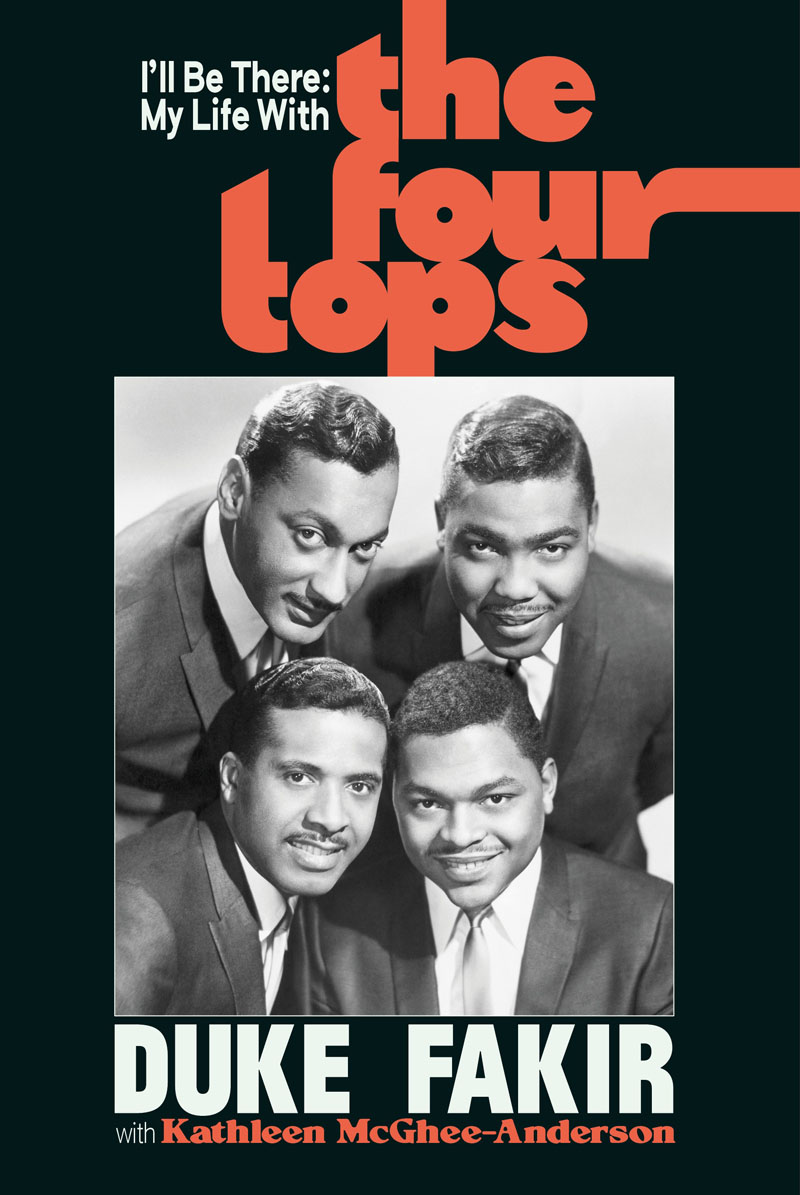
This book is dedicated to my mother, Rubyleon, who set me on my musical path, and who I loved dearly. My grandmother, Amanda, who chose me among all her grandchildren to do hard tasks for her and instilled her marvelous work ethic in me. And lastly, my wonderful wife, Piper, who has loved me unconditionally, saved my life, and made it possible for me to enjoy the two things I treasure most, music and family. She taught me what love is really about and is the only woman I have ever truly loved.
Contents
Foreword
M ost singing groups dont stay together for a lifetime, but The Four Tops did. Not until Lawrence Payton, Obie Benson, and Levi Stubbs sang their last notes did we change our line-up. Now Im the last Top left alive to tell our story, and Ive asked myself, Why me? And what kept us together for so long?
In my view, most of it was out of our hands. Something bigger was at play from the very beginning. In the middle of the twentieth century, worlds were colliding, times were changing, and people were ready for a message of love and togethernessand they could get that from music. The Four Tops were a part of that and maybe because of who we were, a band of brothers who stuck together, known for our melodious harmonies, we were ones to sing it. My voice wasnt the one out in front but none of us wanted all the glory. We werent the most famous group in the world, but we were famous enough.
When we first set out to make it in show business, it was a good thing we didnt know how hard it would be. In the early times of your life, everything is fresh. Every road you take is a new one and you have no idea where its going to lead. When you look back you can see where the rubber hit the road. But at the time, we just kept going.
Along the way I felt protected by some force greater than me. Starting early in my life, several seemingly unrelated events helped navigate my direction. They occurred as visions, in dreams, and in visitations. And when the members of our group eventually met, first Levi and me, and then Obie and Lawrence, the events I envisioned came to pass.
A significant secret to our survival as well as our success was our shared belief that the sum was greater than the parts, and that time would be on our side. We knew that from the beginning, and we held fast to it. We were four totally different guys, but we had a love for the same thing, and thats basically the whole story. Four guys from Detroit who came together because of our love of music, love of entertaining, and love for each otherand we stayed together longer than any group of our era.
I believe the Great Orchestrator chose the four of us because our names represent four corners of the world. My name is Abdul Fakir, which is Muslim; Obies name is Renaldo Benson, from the Spanish world; Levi Stubbs name is from the Jewish world; and Lawrence Payton is as English as you can get.
Now as I go it alone, I know our story is bigger than me. Its not my story, its Gods story. Theres a reason he put us together. To show, first of all, that love conquers everything. We loved singing together, living with each other, working together, and sending that love out into the world. It was always about love. In the beginning, we didnt give a shit about nothing except singing We drove all the way across country without reverse in the car, headed toward our dreams, and there was nothing stopping us. We went full tilt toward the pinnacle of success. Not chasing the buck, chasing the dream. And we made it together.
Still, the journey was different for all of us.

1

The Road From Home
W henever I tell my story, I begin with my father, Nazim Ali Fakir. Im told he was born in 1900 in East India, now known as Bangladesh. He was a devout Muslim and a wonderful father.
As a young man in Bangladesh, my father had been a street singer and a maker of sitars. He eventually earned enough money to get to London, England, where he worked as a cook and chef, chasing his dream of getting to America to work in the car factories. Hed heard that any able-bodied man, no matter his skin color, could get a good job there and earn equal pay. Once he saved enough money, he booked passage on a freight boat to Windsor, Canada. Standing on the banks of the Detroit River, he looked across the forty-foot deep, three-and-a-half mile body of water and dove in. He battled the rivers swiftly moving undertow to reach the Motor City, and he made it. In my life, I was to repeat a similar journey, battling seemingly insurmountable obstacles, to make it in the music business. Like my father, I overcame them. This was due in part to my unique background in both the Islamic and Christian faith, which rooted me in faith and spirituality.
My mother, Rubyleon Eckridge, was born in Sparta, Georgia, in 1914. She moved to Detroit with her parents and her six sisters and brothers in 1925 during the first Great Migration, which saw millions of African Americans move to the industrial North seeking opportunity. She met my father in Detroit as she and her younger sister, Lillar, were walking past a poolroom in the neighborhood. My father and another Indian gentleman, Mr. Uddin, caught their eye, and struck up a conversation that ended up in two marriages and thirteen children between them. Although my parents were from different parts of the world, different races, and without a common language or culture, they both believed in the American dream. Both wanted to raise a family in peace and prosperity. And both were deeply religious, musical people. They rented a house early on and had six children, three boys, Azim, Abdul, Omar, and three girls, Alladhi, Shazen, and Fatima. I was the fourth born and my mother nicknamed me Dukie when I was a baby, because she said I was a little shitter. Once I started school, and heard the reaction, I quickly became Duke. Using any nickname irritated my father because I ceased using my real name, Abdul, which represented the Muslim culture. Soon my parents religions began to clash.
My mother was a devout Christian, who later became a minister. She played the piano and was director of the choir in the church that her father founded, Oak Grove AME. My father must have moved to the same neighborhood she lived in as a young girl because he married her in 1930 when she was sixteen. Her father helped him get a job at the Briggs Manufacturing Company, the automotive factory my grandfather worked in. The owner of the factory, Walter O. Briggs, began as a laborer in the railroad business, then worked his way up in the car industry to eventually supply auto bodies to Ford and Chrysler, as well as other companies in Europe. His story must have been quite an inspiration to my Indian immigrant father and my African American grandfather who migrated to Detroit from the South (an immigrant himself, a recent transplant from the South), both proud to be a part of Americas burgeoning wartime economy.
I adored my father. When I was little, from age three until I was about five, I used to sleep with my mother. My father worked the afternoon shift and didnt come home until midnight or one in the morning. Id go to bed, sleeping and not sleeping, waiting for him to come home. He would always bring a Coney Island hot dog home for me, which Im crazy about to this day. Id be waiting for him to come through the door and hung on his every word.
The North End in Detroit, which is where we lived, was a racially mixed community, a mix of Black, white, Polish, Jewish, Indian, and Italian. My father became very close to Uncle Uddin who married my mothers sister. They made their home right behind my granddaddys church where Uncle Uddin conducted religious classes about the Islamic faith. On Sunday mornings, my father would meet me after church services in his beautiful white suit and hat to take me to study his religion and the Bengali language. I learned a few words and phrases before my mother stopped him. She wanted her children to be raised as good Christians. After that, he would show up in church screaming, Get my kids out of there! Jesus Christ my ass! And they would throw him out. So my parents eventually separated and divorced. I was about seven years old, and remained at home with my mom and the rest of the kids, but I remember his early influence well.
Next page
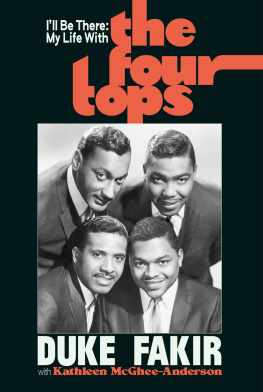
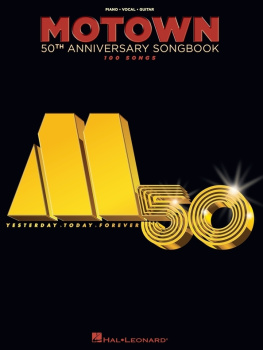
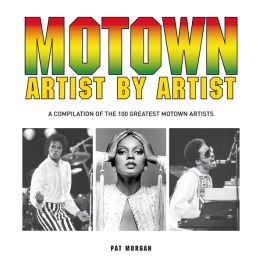
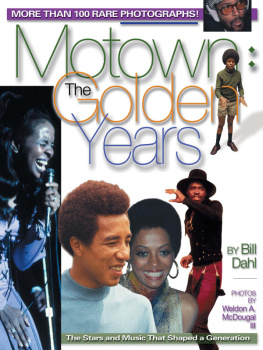
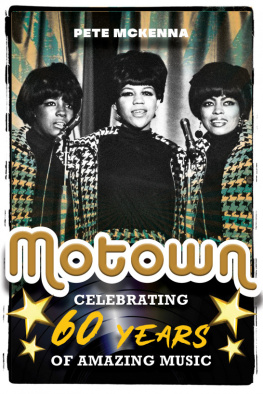

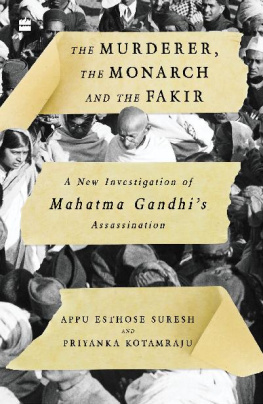
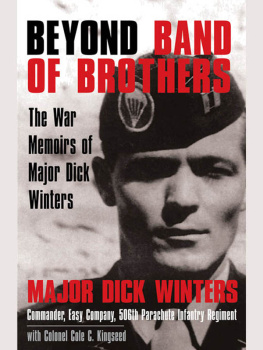

 1
1 